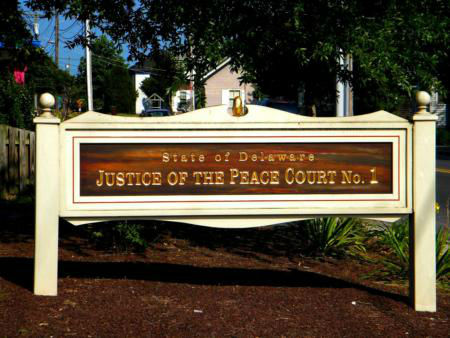Witness for civil marriage / Mixing water and wine at Mass
Q. I am a practicing Catholic. A female friend of mine who was baptized Catholic and her live-in boyfriend (of 25 years) decided to get married by a justice of the peace. My friend attends a Christian non-denominational church; the boyfriend does not attend any religious services. (He has been on disability for many years from schizophrenia; she is manic-depressive.) The brother of the boyfriend is a Catholic priest.
My friend asked me to go to the wedding ceremony and serve as a legal witness. I asked my parish priest, and he said that I could. So I went to the ceremony, presided over by the JP [justice of the peace], and also to the reception. The boyfriend's brother, the priest, was not at the ceremony but did attend the reception, though briefly.
My question is this: If that priest, the groom's brother, did not feel comfortable being at the ceremony, then why was I allowed to participate? (Name of city withheld)
A. I think I know why your parish priest said that it was OK for you to serve as a witness. But I can also understand why the other priest, the brother of the groom, might have felt uncomfortable attending the ceremony. You mentioned that your friend had been baptized a Catholic but now attends a different church. My guess is that her boyfriend was also once a Catholic, since his brother is a priest.
Since neither of the spouses is now a practicing Catholic, no one would reasonably expect them to feel obligated to be married in a Catholic ceremony. On balance, I think it's preferable that they be married civilly rather than not at all, especially since that creates certain legal responsibilities for each other's welfare.
To give them credit, their decision to marry may well have been a principled one, a determination to "make right" their living together. Your support as a friend evidently means a lot to them and is especially important given their recurring struggles with mental illness. For all these reasons, I think that you made the right choice to serve as their witness.
As for the groom's brother, I have of course no awareness of the family dynamics, but he may have felt that his presence at the wedding, even as a nonparticipant, could have been viewed as an official endorsement of the ceremony by the Catholic Church and as an encouragement for others to marry in a nonreligious setting.
Q. I have long wondered why the priest mixes water with the wine at the offertory of the Mass. I have done some research and learned that this was the practice as early as the second century, but I don't understand why it is done. (Medford Lakes, New Jersey)
A. When the priest at the offertory of the Mass pours a drop of water into the chalice filed with wine, it symbolizes the commingling of the divinity of Jesus with our humanity. When doing so, the priest says to himself: "By the mystery of this water and wine may we come to share in the divinity of Christ who humbled himself to share in our humanity."
This symbolic gesture can be found in the earliest rituals of the Eucharist, and St. Cyprian speaks of it in the middle of the third century: "When the water is mingled in the cup with wine, the people are made one with Christ."
St. Thomas Aquinas in "Summa Theologiae" mentions a second symbolism: the water and the blood that flowed together from the side of Christ during his passion. St. Thomas also notes the "probability" that Jesus instituted the Eucharist at the Last Supper with wine tempered with water, since that mixture was a common practice among Jews and in Mediterranean cultures of the time.
---
Questions may be sent to Father Kenneth Doyle at askfatherdoyle@gmail.com and 40 Hopewell St., Albany, N.Y. 12208.
END
09/26/2014 3:35 PM ET
Copyright (c) 2014 Catholic News Service/U.S. Conference of Catholic Bishops
- Father Kenneth Doyle is a columnist for Catholic News Service



















